How to Prepare for New Zealands Great Walks
The best way to explore New Zealand's remote gems is on one of the Great Walks, and the more prepared you are the more fun you'll have.
 Hut on Arthur's Pass
Hut on Arthur's Pass
New Zealand has long been a favourite playground of the global outdoor community. From inhospitable mountain massifs to verdant rainforests, the land traditionally known as Aoteroa offers all kinds of adventure in one place. If you're looking to experience the beauty and diversity first-hand, then one of the best ways to immerse yourself is to hitch up your hiking boots and hit the trails.
The multi-day Great Walks of New Zealand explore spectacular areas of low-lying forests, alpine meadows, gorges, lakes, rivers and waterfalls in some of the more remote parts of the country. Some are reserved for hard-core hikers, while others friendlier to the curious wanderer. All, however, will take a few days to complete and will require a reasonable level of self-sufficiency. Packing for such trips can be the difference between a life-affirming experience and borderline PTSD-inducing horror. Luckily, we've tramped our fair share of trails and have done much of the ill-advised suffering for you. Here are a few of the things you'll want to consider before you go.
Do Your Research
There are a huge number of factors that will determine what goes on your gear list. Will you be staying in huts along the way (you'll need to book these well ahead of time in peak-seasons) or will you carry a tent? What's the weather going to be like? Are you going alone? There may be long stretches of the trails without any drinking water; will you carry extra, take a filter or purification tablets?
There are no blanket answers to these kinds of questions. Just as every trip has its own set of variables, so too has every hiker their own preferences. If you don't know whether to take an ultra-light sleeping pad or a luxuriously insulated version, then it's time to get out the clipboard and start taking notes. Ask friends and family who have more experience, jump online and find folk who've done the trip you're planning and go into your local gear shop to see it for yourself.
At the end of the day, you will have to make these decisions; but when you do at least you'll be confident you made the right ones.
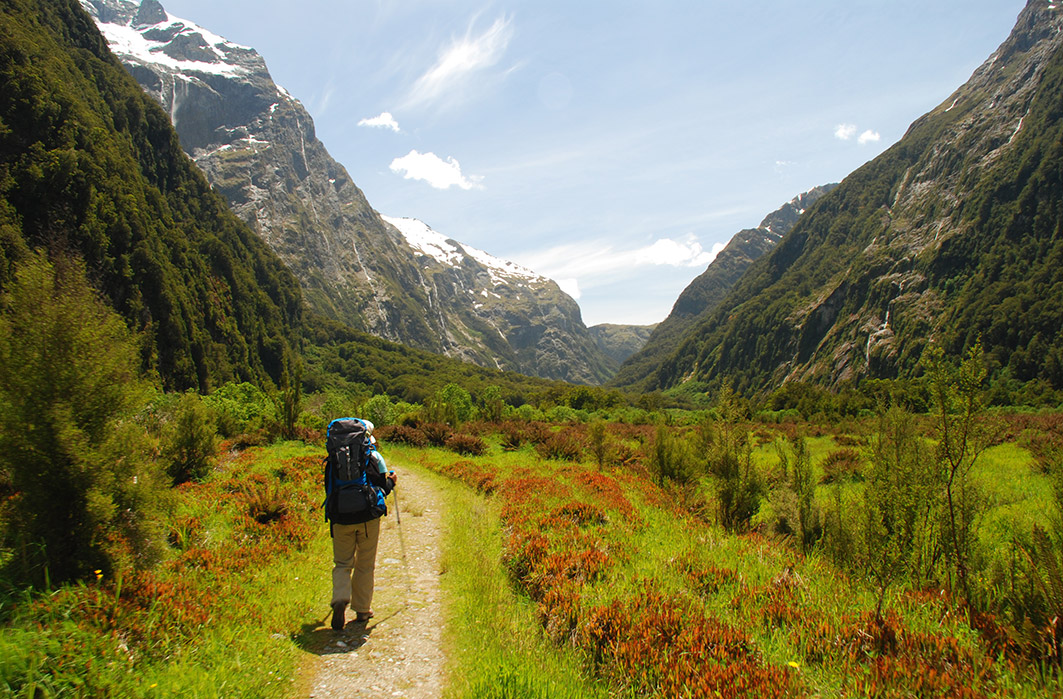 Hiking the Milford Track
Hiking the Milford Track
Big Ticket Items
Often, the cost of hiking gear can be more intimidating than the trip itself, and it's easy to convince yourself that the cheap version is probably just as good. But there are some serious horror stories that start with a cheap bit of kit. When it comes to big ticket items such as packs, boots and sleeping bags, it's often worth forking out the extra bit of cash for a decent product. You won't need Everest mountain boots for a walk across NZ, but you might want to spring for something with a waterproof Gore-Tex liner as a step up from your old gym shoes.
Unless you've got a degree in gearology, then it's probably best to avoid buying these things online. The last thing you want to do is drop a bundle of cash on a pack, only to find that you've ordered a men's size instead of a women's size without realising, then discovering you can't return it because it was on sale. Be sure that your pack and shoes are fitted correctly, trekking poles are the right length and that you fit in your sleeping bag. These things can cause misery on the trail.
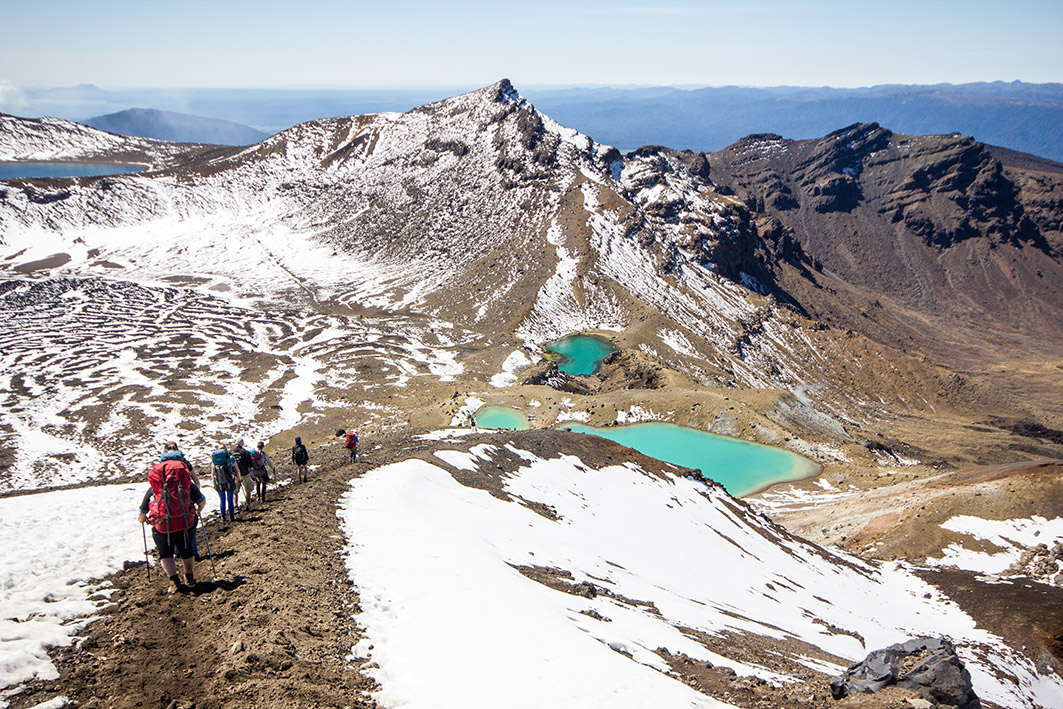 Tongariro Alpine Crossing
Tongariro Alpine Crossing
Sustenance
It's a good idea to plan out you food consumption day by day. Figure out how many calories you'll need to consume using one of the many online calculators. This will vary depending on a number of factors including your size and the weather. Once you've got that figured out, take some time to test the menu. Whip out the camp stove at home and try out some of the freeze-dried meals on offer. If your more of a gourmet, consider getting your own food dehydrator and preparing things from scratch. Type 'camp stove recipes' followed by your favourite ingredients into Google and see what comes up.
Good food and drink will not only fuel your body on the trail, it'll keep your spirits high.
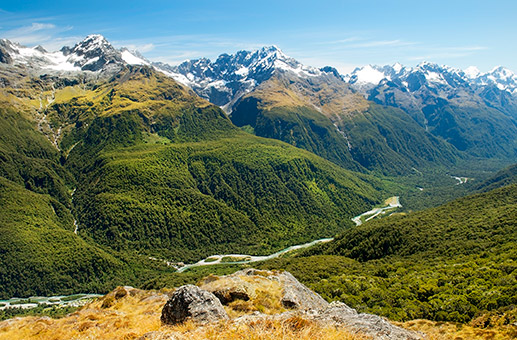
Routeburn Track
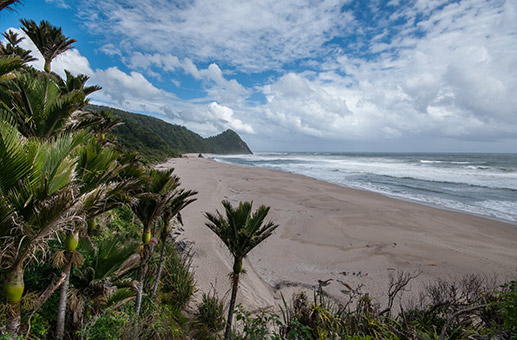
Heapy Track
Weight Reduction
While you don't want to go strapping a cast-iron skillet to your pack, don't fall for the belief that lighter is always better – weight reduction comes at a cost. Ultra-light tents are often less water-resistant than regular hiking tents; titanium cook wear doesn't disperse heat too well, so you'll often end up with a burnt crust at the bottom; carbon fibre trekking poles are brittle and more likely to break than aluminium. Comfort and durability may justify lugging a bit more weight.
Test Runs
Any time you purchase new gear it's important to try it out before going on any serious trips. It's best to simulate the conditions that you're likely to encounter on the real deal; things like terrain and pack weight can make a big different. You might feel like a dork walking around the local park with a 60L pack on your back, but that pain pales in comparison to what a poorly fitted pack will do to your spine over 60km.
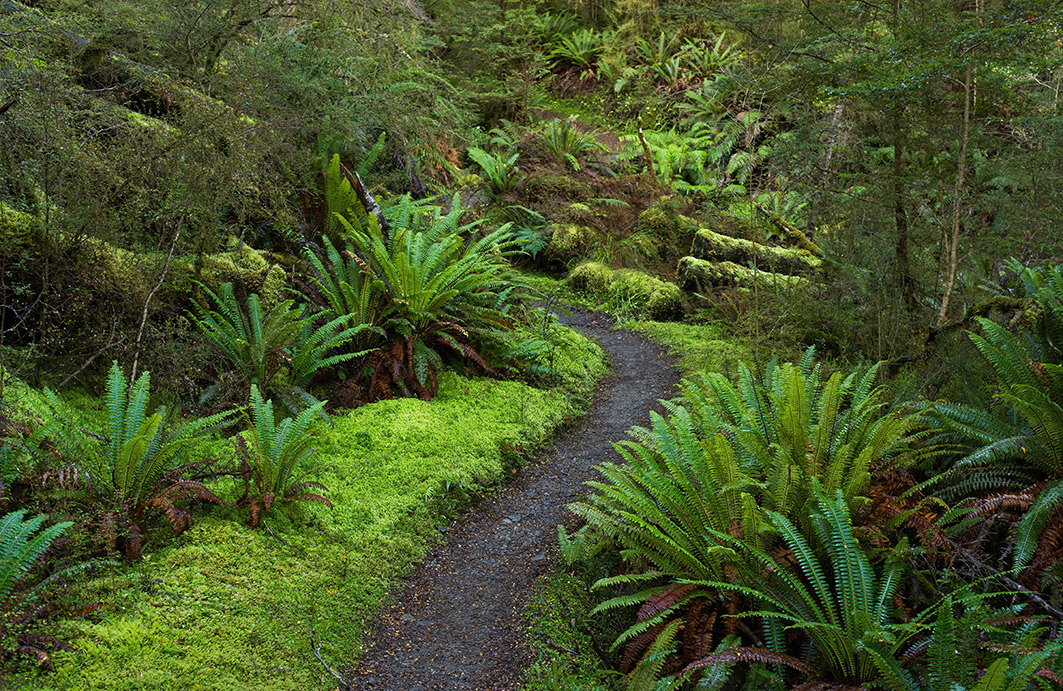 Kepler Track
Kepler Track
Emergencies
Although we all do our best to avoid accidents, they happen. Never underestimate the wilderness, it can be dangerous and there are always objective hazards. When mother nature laughs are you plans, make sure you know how to handle yourself. Never head out without a first aid kit and know how to use it. If you're objective is right out the back of nowhere, perhaps consider doing a wilderness first-responders course – rescues can take time in remote areas. Don't expect your mobile phone to act as a suitable safety net. Personal locator beacons and satellite phones are worth looking into before heading into the depths of the unknown.
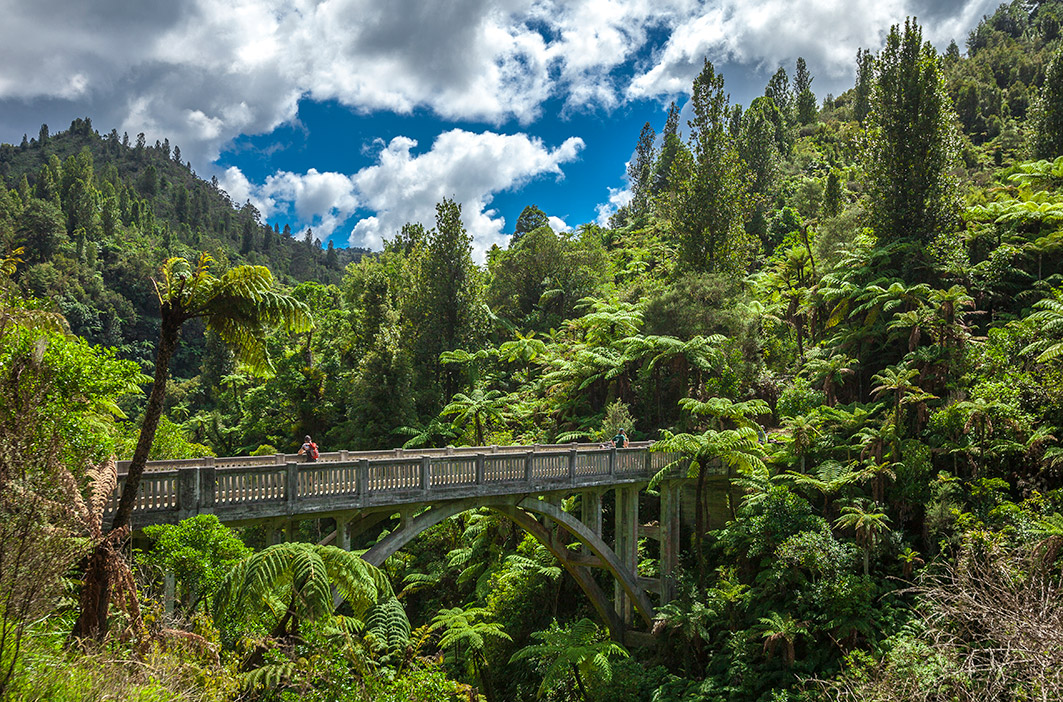 Bridge of Nowhere, Whanganui
Bridge of Nowhere, Whanganui
When it all boils down, the better prepared you are for the Great Walks, the less you'll have to worry when you're out there, the more you can focus on the stunning New Zealand landscape. Well prepared walkers are happy walkers and good walking companions. If you're heading out there to have fun then be sure to give yourself every opportunity to do so.
For more information on New Zealand's Great Walks, check out Hema's New Zealand Touring Atlas.






0 comments